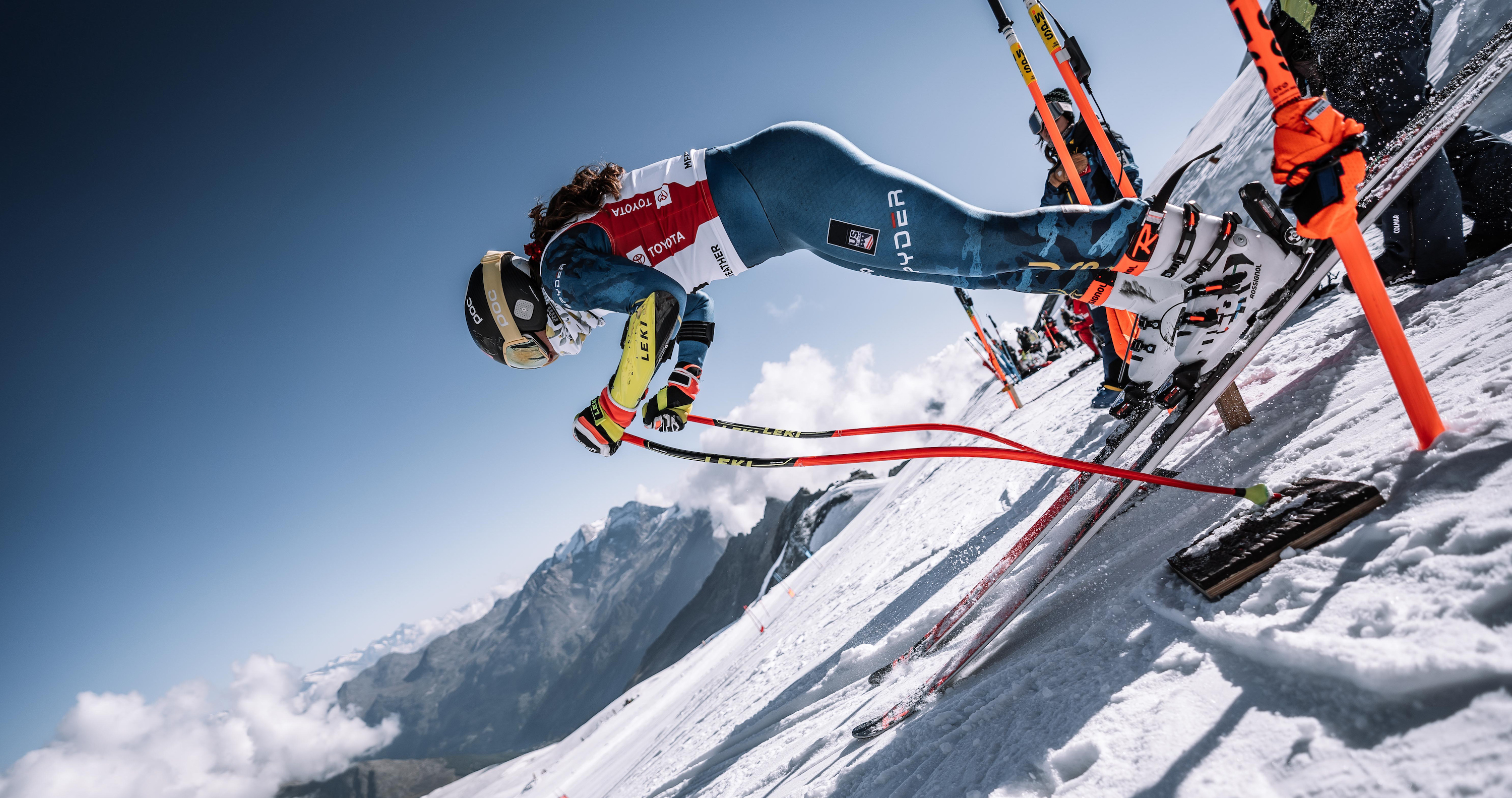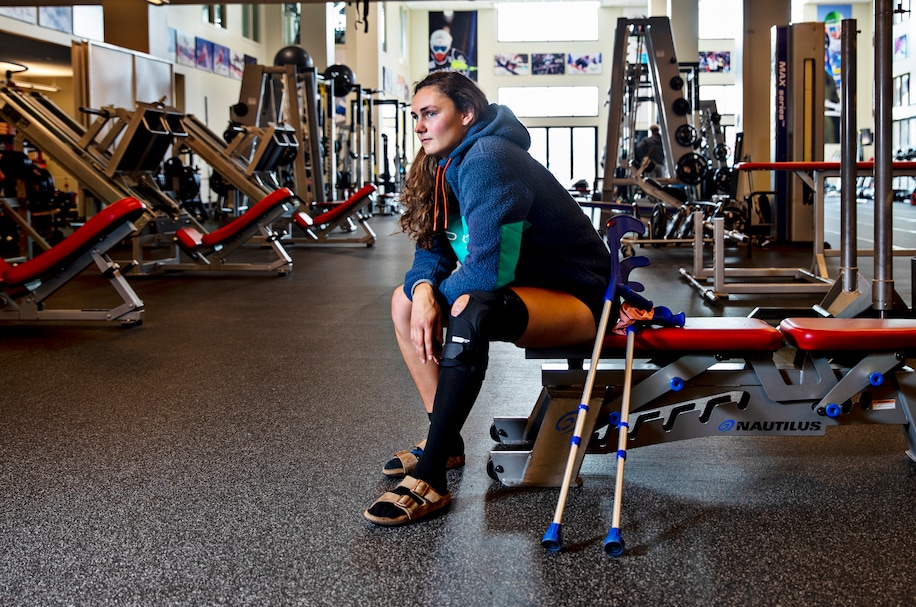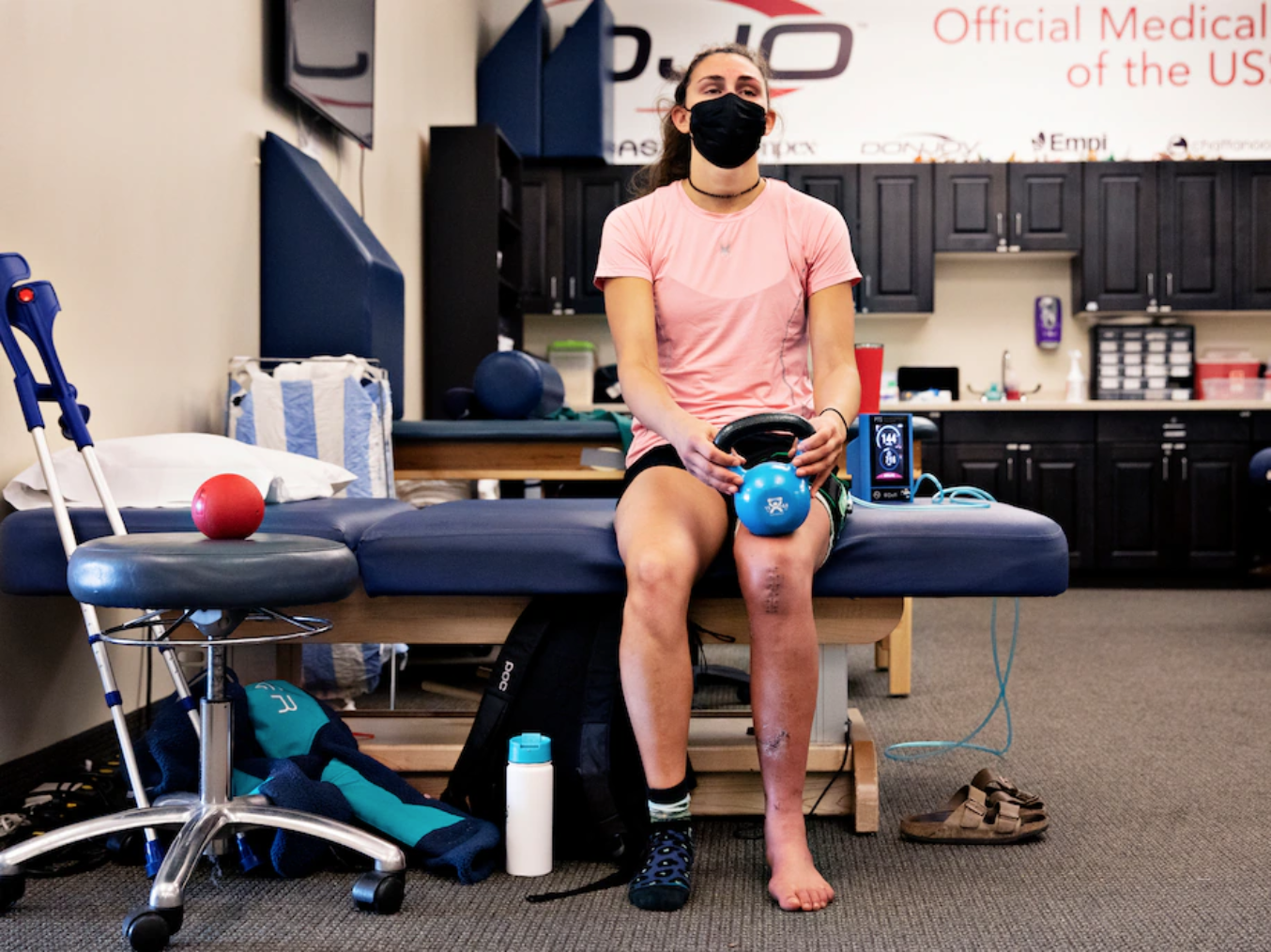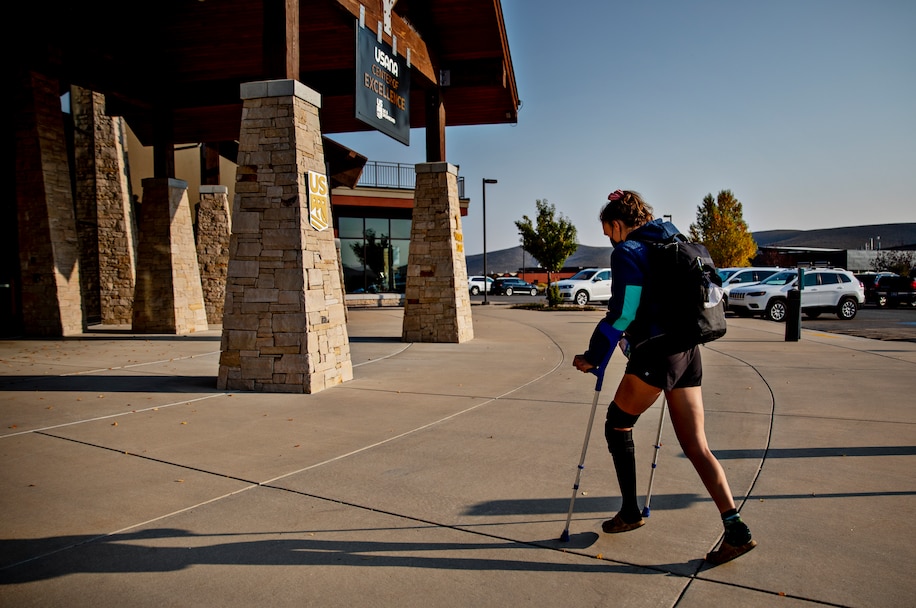Merryweather's Journey Featured in the Washington Post

Olympian speed skier Alice Merryweather was recently featured in a powerful Washington Post piece entitled, "Olympic skiers live life on the edge. Alice Merryweather knows how deeply it can cut," written by Barry Svrluga.
This season was supposed to be Olympian Alice Merryweather's comeback season, after sitting out the 2020-21 season to take the time needed to focus on health and happiness as she pursued intensive treatment for an eating disorder. All signs were pointing towards brighter days, as Merryweather tackled a successful strength and conditioning period as well as return-to-snow camps in Official Training Site Mammoth Mountain, Calif., and then Saas-Fee, Switzerland with many bright moments both on and off the mountain with her teammates. She was skiing strong, showing her teammates, coaches, competitors—and most importantly, herself—how far she had come the last 12 months...and just how much joy she had found in skiing again.
And then, it happened. A crash while going 80mph during a downhill training day at Saas-Fee (three weeks ago) towards the bottom of the course, resulted in a broken tibia and fibula, and a scraped-up and swollen face. She returned to the states to undergo further medical evaluation and learned the extent of her injuries: along with the broken tibia and fibula, she also suffered a torn ACL, meniscus, and partially torn MCL.

Merryweather told Svlurga,
“When I looked at my legs, my left leg was bending in the middle of my shin,” Merryweather said. “That was kind of the moment that I knew: ‘Okay, my leg is broken.’ ”
The Beijing Winter Olympics are less than five months away. Merryweather, a medal hopeful not long ago, won’t be skiing in them. The 24-year-old from Massachusetts made it to the 2018 Games in South Korea, then took off the entirety of last season to grapple with an eating disorder that left her body frail and her mind wondering whether she loved skiing anymore. She fought her way back onto the mountain — and then found herself sliding down that glacier in Saas-Fee, Switzerland, the victim of what could be described only as an absolute fluke of an accident in training. She faces at least nine months of rehabilitation just to get back to where she already was.
“It sucks,” she said last week by phone. “It really, really sucks.”
If and when you flip on the Olympics, remember that for every athlete that shows up, someone else was left home. There are dreams that will be realized and dreams that will be dashed. But there are also dreams on pause, replaced by the isolation and anonymity and monotony of physical therapy and rehabilitation, the next World Cup season a hope, the next Olympics so far off in the distance.

He wrote,
“You’re just working on getting a good line, having solid tactics, not necessarily trying to push it anywhere,” Merryweather said. “It wasn’t an aggressive run by any means. I wasn’t taking any risks.”
An Alpine skier defines “risk” differently from the rest of us. That day, Merryweather and her teammates were training for downhill, skiing’s fastest discipline. Near the bottom of the course, Merryweather would have been traveling at around 80 mph. At 80 mph, hitting an unexpected, tiny bump — well, there’s risk.
“All we’re trying to do is prevent the possibility of having situations like that,” said Mikaela Shiffrin, the two-time Olympic gold medalist and three-time World Cup overall champion. “Alice has been working so hard this summer, and it was such a fluky thing. No matter what you do, there’s always that risk. This, it was just dumbfounding.”

Alice knows she will get through this, because she has lived through far worse.
Svrluga left his readers with a poignant reminder about the heartbreak of Olympic sports, sharing:
“The passion never went away,” Merryweather said. “Just the feeling I had during training camp before the accident is still so much stronger than the pain I felt in the moment, and even the uncertainty of the next nine months. Skiing is my number one passion. It’s the love of my life. And I am going to do everything in my power to get back to racing again.”
When the Olympics come on in February, there will be ski racers and lugers and hockey players and figure skaters, and they’ll all have stories about how they got there. But remember, too, how fragile this all is. Remember the athletes who have the talent and have put in the work but are left back home anyway, the road ahead uncertain and unglamorous.
